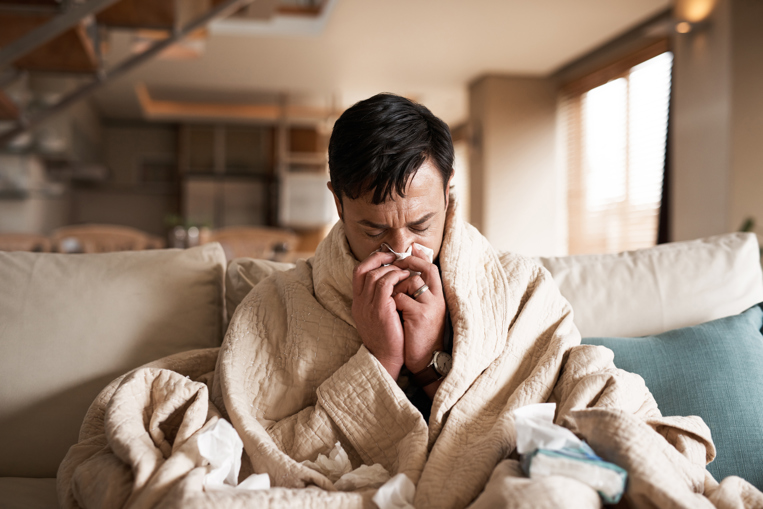
Flu, Cold, or Something Else: Understanding Symptoms and Taking Action
Illnesses like the flu and the common cold often share similar symptoms, making it tricky to distinguish between them. Understanding the differences and knowing when to seek medical advice can be crucial for timely recovery.

FLU (INFLUENZA)
Hallmark Symptoms:
- Sudden Onset: The flu hits rapidly, often with a sudden onset of symptoms like high fever, body aches, fatigue and chills.
- Respiratory Symptoms: Dry cough, sore throat, nasal congestion and sometimes, shortness of breath.
- Systemic Symptoms: Headache, muscle pain, fatigue and weakness.
Best Course of Action:
- Rest: Get plenty of rest to allow your body to fight the infection.
- Hydration: Stay hydrated with water, herbal teas or clear soups.
- Medication: Over-the-counter flu medications can help alleviate symptoms. Consult a healthcare professional for guidance.
- Avoid the Flu: Getting an flu shot can help you avoid the flu, or lessen its effects on your body. Talk to your primary care provider and get vaccinated annually.

COMMON COLD
Hallmark Symptoms:
- Gradual Onset: Colds tend to develop gradually over a few days.
- Milder Symptoms: Typically involves a runny or stuffy nose, sneezing, sore throat and a mild cough.
- Rare Systemic Symptoms: Unlike the flu, colds seldom cause severe body aches or high fever.
Best Course of Action:
- Rest and Hydration: Similar to the flu, rest and hydration are essential.
- Symptomatic Relief: Over-the-counter cold medications can help alleviate symptoms. Saltwater gargles or throat lozenges may soothe a sore throat.

OTHER ILLNESSES
Sometimes, symptoms might not fit neatly into the flu or cold categories. Other conditions, such as allergies, sinus infections, or COVID-19, may manifest similar symptoms. In cases of uncertainty or severe symptoms, seeking medical advice is recommended.
What To Do:
- Hand Hygiene: Regular handwashing helps prevent the spread of viruses.
- Avoid Close Contact: Stay away from sick individuals to reduce the risk of getting infected.
- Cover Mouth and Nose: When sneezing or coughing, use a tissue or your elbow to prevent spreading germs.
- Stay Home: If you're feeling unwell, it's best to stay home to prevent spreading illness to others.
When in doubt or if symptoms worsen, especially with difficulty breathing, persistent high fever, or severe body aches, seeking medical attention is crucial. Remember, while self-care is vital, seeking professional medical advice is always advisable for accurate diagnosis and treatment.
